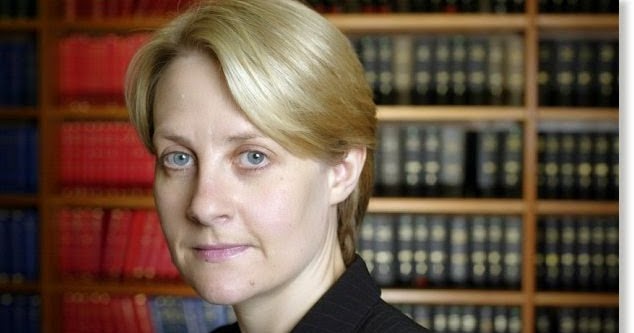By Ashley Young-
The preliminary hearing in a libel case against The Times Newspaper began today at The Royal Courts Of Justice, and will attract much interest.
That’s because barristers are split as to how the case will eventually be ruled, with some strongly believing their female colleague will be successful, and many others concluding she has no chance
Public law specialist Barbara Hewson (pictured), claims the Times newspaper defamed her in a 2017 article by accusing her of making death threats to a law student. The allegation of defamation is not as clear cut as in the typical case where claims like these arise.
The main hearing which commences on 7 December and is listed for three days in the High Court will be of much public interest because of the duty on newspapers and the media in general to only publish truthful information. Information believed to be true which turns out to be false does not free a publication from blame, but could reduce the punishment if they had good reason to believe it was true.
At a preliminary hearing at the Royal Courts of Justice this morning, The Times Newspaper, represented by solicitor-advocate David Price QC – was asked to clarify its pleadings after the claimant issued a Part 18 request under the Civil Procedure Rules.
The Honourable Mr Justice Nicklin asked the newspaper to make clear whether it intended to defend the claim on the ground that the journalist who wrote the article reasonably believed that the allegations against Hewson were true, or on the ground that the allegations were objectively true.
‘There is a significant and material difference between those two things and a difference in the level of enquiry required at trial,’ Nicklin J said.
It is believed that The Times Newspaper will rely on the public interest defence created by Section 4 of the Defamation Act 2013. This protects neutral reportage of disputes in a matter of public interest, even when the publisher cannot prove the truthfulness of allegations.
At a preliminary hearing to establish the article’s meaning, the High Court last year ruled that The Times had accused Hewson – a public law barrister – of making death threats to a law student, and subjecting him to harassment and bullying.
In his judgment, Nicklin J said: ‘I find the meaning of The Times article to be: “the claimant was guilty of repeated acts of harassment and online bullying”’.
Bullying Allegation
Hewson, who was called to the bar in 1985, was suspended from practice for two years in December 2019, after being charged with professional misconduct by the regulator over a series of tweets and a blog post.
An independent disciplinary tribunal found that the posts were ‘seriously offensive, abusive and publicly disparaging towards another barrister’, with some directed at that barrister’s competence and reputation.
It also found they were ‘obscene or seriously offensive in terms of the language used’ and ‘disparaging of the BSB’s regulatory process thereby undermining public trust and confidence in that process and thus in the profession’. However, the word ‘bullying’ wasn’t used by the regulator, but may have have been interpreted to equate to bullying.
The Times is one of the most reputable newspapers in the Uk.




